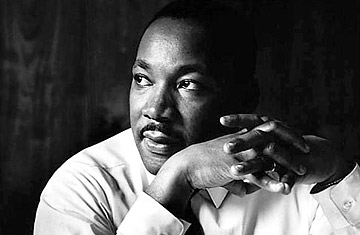
(5 of 11)
The Negroes made their crisis, but it was no spur-of-the-moment matter. King himself went to Birmingham to conduct workshops in nonviolent techniques. He recruited 200 people who were willing to go to jail for the cause, carefully planned his strategy in ten meetings with local Negro leaders. Then, declaring that Birmingham is the "most thoroughly segregated big city in the U.S.," he announced early in 1963 that he would lead demonstrations there until "Pharaoh lets God's people go."
Awaiting King in Birmingham was Public Safety Commissioner Theophilus Eugene ("Bull") Connor, a man who was to become a symbol of police brutality yet who, in fact, merely reflected the seething hatreds in a city where acts of violence were as common as chitlins and ham hocks. As it happened, Bull Connor was running for mayor against a relative moderate, Albert Boutwell. To avoid giving campaign fuel to Connor, King waited until after the April 2 election. Between Jan. 16 and March 29, he launched himself into a whirlwind speaking tour, made 28 speeches in 16 cities across the nation.
Moving into Birmingham in the first week of April, King and his group began putting their plans to work. Bull Connor, who had lost the election but refused to relinquish power, sent his spies into the Negro community to seek information. Fearing that their phones were tapped, King and his friends worked up a code. He became "J.F.K.," Ralph Abernathy "Dean Rusk," Birmingham Preacher Fred Shuttlesworth "Bull," and Negro Businessman John Drew "Pope John." Demonstrators were called "baptismal candidates," and the whole operation was labeled "Project C"—for "Confrontation."
The protest began. Day after day, Negro men, women and children in their Sunday best paraded cheerfully downtown to be hauled off to jail for demonstrating. The sight and sound of so many people filling his jail so triumphantly made Bull Connor nearly apoplectic. He arrested them at lunch counters and in the streets, wherever they gathered. Still they came, rank on rank. At length, on Tuesday, May 7, 2,500 Negroes poured out of church, surged through the police lines and swarmed downtown. Connor furiously ordered the fire hoses turned on. Armed with clubs, cops beat their way into the crowds. An armored car menacingly bulldozed the milling throngs. Fire hoses swept them down the streets. In all, the Birmingham demonstrations resulted in the jailing of more than 3,300 Negroes, including King himself.
The Response. The Negroes had created their crisis—and Connor had made it a success. "The civil rights movement," said President Kennedy in a meeting later with King, "owes Bull Connor as much as it owes Abraham Lincoln." That was at best an oversimplification; nevertheless, because of Connor, the riots seared the front pages of the world press, outraged millions of people. Everywhere, King's presence, in the pulpit or at rallies, was demanded. But while he preached nonviolence, violence spread. "Freedom Walker" William Moore was shot and killed in Alabama. Mississippi's N.A.A.C.P. Leader Medgar Evers was assassinated outside his home. There was violence in Jackson, Miss., in
